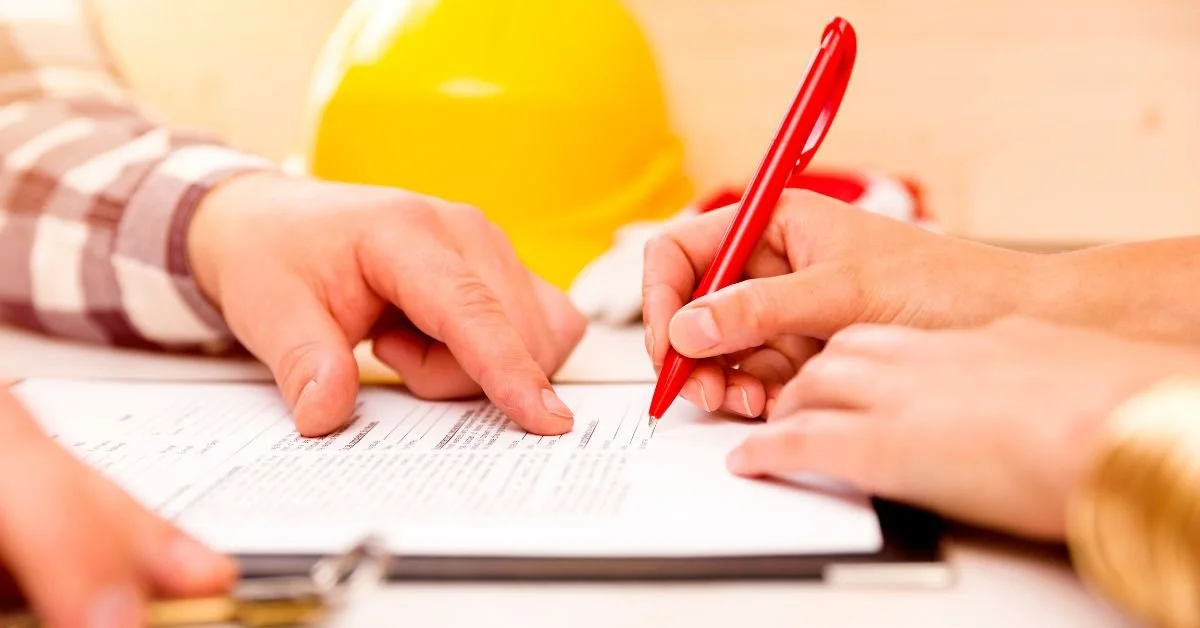How To Choose the Right Concrete Contractor for Your Project
A well-executed concrete job enhances your home’s curb appeal and functionality. A poor one leads to cracks, uneven surfaces, and future headaches. The secret to securing the best job lies in selecting the right contractor. In this guide, you’ll find clear, practical steps to help you choose the right concrete contractor for your project.
Step 1: Define Your Project, and Identify Specialized Contractors
Before you search for contractors, you must first clarify your project’s scope and needs. Are you looking to install a standard broom-finished driveway, or do you desire a decorative stamped concrete patio that mimics natural stone? The materials, techniques, and skills required for each vary greatly.
Create a detailed list of what you want, including dimensions, desired finish, and any special considerations, such as drainage or reinforcement needs. Having a clear plan helps you find contractors with the right specialization and communicate your expectations effectively.
Look for Proven Experience in Similar Projects
When reviewing a contractor’s portfolio, look for projects that mirror your own. A contractor who primarily pours large commercial foundations may not possess the finesse required for detailed residential decorative work. An experienced residential contractor will proudly showcase their past work, demonstrating their capability to handle the textures, patterns, and finishes you desire.
Understand the Different Concrete Services
Familiarize yourself with the services that concrete construction contractors offer. Some professionals specialize in new installations, while others focus on repair and maintenance. For instance, if you have a sunken driveway, you need a contractor skilled in concrete leveling or lifting, often using polyurethane foam injection. If you have surface cracks, another contractor might specialize in sealing and resurfacing. Knowing these distinctions helps you hire a qualified professional who can manage every aspect of your project.
Step 2: Vet Potential Contractors Thoroughly
Once you have a list of potential contractors, your next step involves a deep dive into their qualifications and reputation. You must verify their credentials, check their standing within the community, and hear from previous customers.
A great contractor builds a track record of quality workmanship and positive client interactions. So, spending time on this verification process protects you from hiring someone who lacks professionalism or expertise. It also helps you gauge their reliability and commitment to customer satisfaction.
For starters, you must confirm the contractor’s licensing and insurance. A valid license shows they meet state or local requirements for professional practice. Furthermore, ask for proof of both general liability insurance and workers’ compensation coverage. General liability protects your property from damage, while workers’ compensation covers injuries to the crew on your property.
Examine Their Professional Presence
A contractor’s professional presence reflects their work ethic and organization. Review their website, social media profiles, and the marketing materials they provide. A professional website that showcases a detailed portfolio, provides clear contact information, and explains the company’s services suggests a well-run business.
Step 3: Get Detailed, Written Estimates
Choose the right concrete contractor for your project by narrowing your list to three qualified contractors and obtaining a detailed, written estimate from each. An estimate should offer a comprehensive breakdown of the entire project. Comparing detailed estimates helps you evaluate the cost, value, and thoroughness each contractor offers.
When you receive multiple quotes, resist the temptation to select the lowest bidder automatically. A suspiciously low price could indicate the use of subpar materials, inexperienced labor, or a desperate attempt to win the job. Instead, compare the specifics of each estimate side-by-side.
For instance, one contractor might include wire mesh or rebar reinforcement in their quote for a driveway, while another may omit it to cut costs. The contractor that includes reinforcement provides a more durable, long-lasting product, justifying a higher price. Think of it as prioritizing long-term value over short-term savings.
Step 4: Ask the Right Questions Before Signing
With detailed estimates in hand, you can have a final, clarifying conversation with your top candidates. This discussion allows you to address any remaining questions and gauge their communication skills one last time. Prepare a list of questions that cover project specifics, potential challenges, and their warranty policies. A professional contractor will welcome your questions and provide direct, honest answers.
Inquire About the Team and Timeline
Ask who will perform the work and oversee the project on-site. Knowing who your point of contact will be ensures clear communication throughout the project. You should also request a projected timeline, including a start date and an estimated completion date. While weather can cause delays in concrete work, an experienced contractor can provide a realistic schedule and explain their process for communicating any necessary adjustments.
Discuss Payment Schedules and Warranties
Clarify the payment schedule before signing any contract. A common practice is to put down a deposit upon signing, with subsequent payments tied to project achievements and a closing payment upon completion. Avoid contractors who request a large upfront payment before work begins, as this can be a red flag. Furthermore, ask detailed questions about their warranty. A reputable contractor will stand behind their work with a warranty that covers material and workmanship defects.
Step 5: Finalize With a Comprehensive Contract
The final step before work commences is to secure a formal, written contract. This legally binding document protects both you and the contractor by formalizing all the details you have discussed. It should incorporate everything, from the project scope and material specifications to the payment schedule and warranty information. Never proceed with a project based on a verbal agreement alone. The contract serves as the official reference point for the entire job.
Review Every Detail Before You Sign
Read the contract carefully to ensure it matches the written estimate and includes all the agreements you have made. For instance, verify that it lists the exact materials, dimensions, and finishes. The contract should also restate the project cost, payment terms, and the warranty details you discussed.
For instance, if the contractor agreed to use a 4,000 PSI concrete mix and include rebar reinforcement for your driveway, those specifications must appear in the contract. Do not sign until you feel comfortable with every term and condition outlined in the document.
Understand the Change Order Process
Even with careful planning, you might face unexpected issues or want to make a change during the project. Your contractor should add an explicit clause in the contract about handling change orders. You must document any changes to the scope, materials, or cost in writing, and both you and the contractor need to sign before starting the new work. For example, if you want to extend a patio by a few feet, the change order will spell out the extra cost and any adjustments to the schedule.
Overall, staying transparent and keeping detailed records with your contractor sets you up for a smooth project and results you’ll feel proud to call your own.



